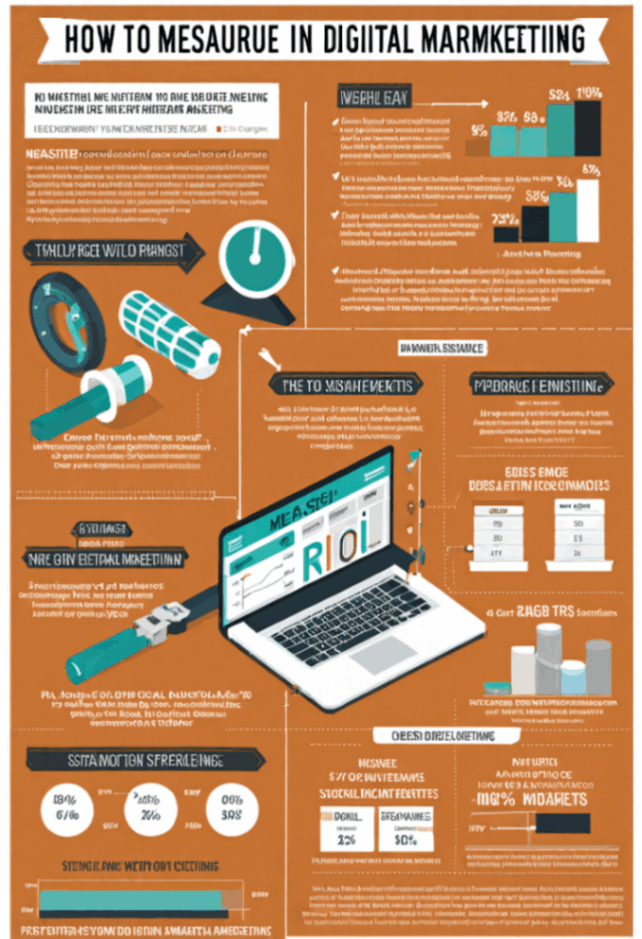

Tracking data is super important for achieving success in any business or project. Without tracking, we would be flying blind and not knowing what's working and what's not. Data gives us insights into our performance and helps us make informed decisions.
I mean, imagine trying to drive a car without looking at the dashboard. You wouldn't know how fast you're going, how much gas you have left, or if there are any issues with the engine. additional information available see this. It's the same with tracking data for success - it keeps us on track and helps us avoid potential problems.
By analyzing data, we can see trends and patterns that can guide our strategies moving forward. We can identify areas of improvement and capitalize on opportunities that may have gone unnoticed otherwise.
Furthermore, data allows us to measure our progress towards our goals and adjust our tactics as needed. It's like having a roadmap that shows us where we are and where we need to go.
In conclusion, tracking data is essential for achieving success in any endeavor. It provides us with valuable information that can help us make better decisions and ultimately reach our goals. For more details click here. So next time you're tempted to skip tracking your data, just remember how important it is for your success!
Key Performance Indicators, or KPIs, in Social Media Marketing is essential for tracking success and measuring progress. Without these indicators, it can be difficult to know if your efforts are paying off and if you're reaching your goals. KPIs provide valuable insights into what's working and what needs improvement in your social media strategy.
When analyzing analytics and metrics, it's important to focus on the most relevant KPIs for your specific goals. Don't just look at vanity metrics like followers or likes; instead, pay attention to engagement rates, click-through rates, conversion rates, and other indicators that directly impact your bottom line.
By regularly monitoring these KPIs, you can make informed decisions about how to optimize your social media campaigns and allocate resources effectively. And don't forget to set realistic benchmarks and track progress over time to ensure continuous improvement.
In conclusion, incorporating key performance indicators into your social media marketing strategy is crucial for success. By using analytics and metrics to measure performance, you can better understand the effectiveness of your efforts and make data-driven decisions that will drive growth and success for your business.
So, you wanna make your online presence go through the roof with social media marketing, huh?. Well, one key thing you gotta do is analyze your data and tweak your strategies for best results.

Posted by on 2024-06-01
Yo, let's talk about customer feedback and reviews in today's marketing game.. It's all about tapping into that user-generated content to boost your brand reputation, ya feel me?
Social media is where it's at these days when it comes to marketing strategies.

Posted by on 2024-06-01
There's a whole bunch of different types of analytics tools out there for monitoring performance. These tools can help you keep track of how well your business is doing, identify areas that need improvement, and make informed decisions based on data. Instead of just guessing or going off gut feelings, these tools give you solid information to work with.
One type of analytics tool is called a dashboard. This is like a one-stop-shop for all your performance data - it shows you key metrics in an easy-to-read format so you can quickly see how things are going. Another type is a predictive analytics tool, which uses algorithms to forecast future trends based on past data.
Then there are diagnostic analytics tools, which dig deep into the causes behind certain trends or patterns in your data. By looking at these root causes, you can figure out what changes need to be made to improve performance.
Of course, no tool is perfect and they all have their limitations. But having access to this kind of information can really help you stay on top of things and make smarter decisions for your business.
So next time you're feeling unsure about how your company is doing, consider using some analytics tools to get a better picture of what's really going on!

Understanding metrics like engagement, reach, and conversion rates can be a bit confusing at first. It's easy to get overwhelmed by all the numbers and data. But don't worry, with a little practice and patience, you'll start to make sense of it all.
Engagement is all about how users interact with your content. It includes likes, comments, shares, and other actions that show they're paying attention to what you're putting out there. Reach measures how many people are seeing your content - the more eyes on your posts, the better. And conversion rates tell you how many people are actually taking action based on your content - whether that's making a purchase or signing up for more information.
It's important to keep track of these metrics so you can see what's working and what's not. By analyzing the data, you can make informed decisions about your marketing strategy and improve your results over time.
So next time you're feeling overwhelmed by all those numbers, just take a deep breath and remember that understanding metrics is a process. With a little effort and some trial and error, you'll soon be an analytics pro!
When it comes to analyzing data and making informed decisions, there are a variety of strategies that can be employed. One key aspect is to ensure that the data being used is accurate and up-to-date, as this will greatly impact the quality of the decisions made.
Another important factor to consider is the use of different analytical tools and techniques. By utilizing a variety of methods, such as regression analysis or clustering algorithms, you can gain deeper insights into your data and uncover hidden patterns or trends.
Additionally, it's essential to involve stakeholders in the decision-making process. By getting input from various team members or departments, you can ensure that all perspectives are taken into account and make more well-rounded decisions.
Furthermore, don't forget about the importance of setting clear goals and objectives before diving into the data analysis process. This will help guide your efforts and ensure that you are focusing on what truly matters.
In conclusion, by implementing these strategies for analyzing data and making informed decisions, you can improve your overall decision-making process and drive better results for your organization. So, let's get started!

Implementing changes based on insights from analytics is a crucial step in improving business performance. By analyzing data and drawing conclusions, companies can identify areas for improvement and make strategic decisions to drive growth. However, many organizations struggle with actually implementing these changes due to various challenges.
One of the main obstacles is resistance from employees who may be reluctant to change their familiar processes. It's natural for people to resist change, especially if they feel like it threatens their job security or disrupts their daily routine. This can result in pushback and lack of buy-in from key stakeholders, making it difficult to successfully implement new strategies based on analytics.
Another challenge is the complexity of interpreting data and turning insights into actionable plans. Oftentimes, companies collect vast amounts of information but struggle to make sense of it all. Without a clear understanding of what the data is telling them, organizations may not know where to focus their efforts or how to prioritize changes that will have the greatest impact.
Despite these challenges, it's important for companies to push through and find ways to effectively implement changes based on analytics. By engaging employees early on in the process, providing training and support, and clearly communicating the benefits of the proposed changes, organizations can increase buy-in and reduce resistance.
In conclusion, while implementing changes based on analytics may present its fair share of challenges, it is essential for driving business growth and staying competitive in today's fast-paced market. By addressing resistance, simplifying data interpretation, and fostering a culture of continuous improvement, companies can leverage insights from analytics to make informed decisions that lead to success.